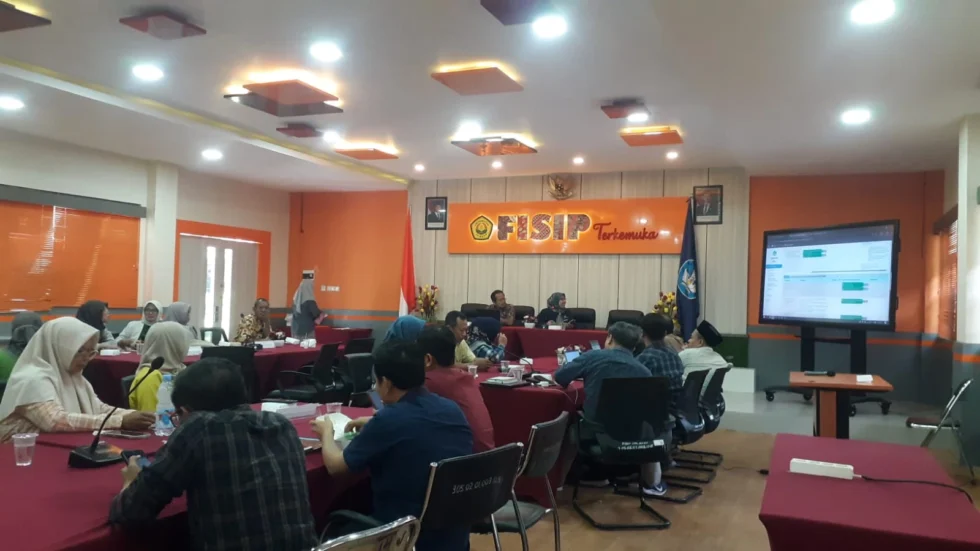The Faculty of Social and Political Sciences (FISIP) at the University of Jember (Unej) is demonstrating a strong commitment to fostering clean and accountable governance. On Tuesday, July 17, 2025, at the International Room, FISIP held a coordination meeting focused on accelerating the completion of supporting documents for the Integrity Zone (ZI) Development.
The meeting, directly led by Prof. Drs. Abubakar Eby Hara, M.A., Ph.D., Secretary of the FISIP Unej Integrity Zone Team, marks a strategic step toward achieving Corruption-Free Zone (WBK) and Clean and Serving Bureaucracy Zone (WBBM) status in 2025.
This meeting is a follow-up to the Decree (SK) of the Dean of FISIP University of Jember Number 5184/UN25.1.2/KP/2025 concerning the Integrity Zone Development Working Team. In his directive, Prof. Eby emphasized that ZI development is not merely an administrative formality but a fundamental shift in work culture. He urged the entire working team to collaborate solidly and ensure that every document prepared is not only complete but also reflects the real implementation of bureaucratic reform within the faculty.
The primary focus of the meeting was to evaluate the progress of data and document collection across the six ZI change areas. Each area head presented their achievements and challenges. Intensive discussions were held to find solutions to various obstacles and to formulate a more measurable timeline to ensure all requirements are met according to targets set by internal and external assessment teams.
During the meeting, Prof. Eby, appointed as the ZI implementation coordinator based on the Dean’s Decree, also provided technical guidance. He stressed the importance of validity and the correlation between documents and physical evidence on the ground. “Document completeness is a reflection of our seriousness. Every piece of data must be accountable and align with the service practices and governance we carry out daily. Synergy between areas is the main key to our success,” stated Prof. Eby.
With this coordination meeting, FISIP Unej is optimistic about comprehensively and qualitatively completing all supporting documents. This step is expected to not only lead FISIP to achieve ZI-WBK/WBBM status but, more importantly, to realize a clean and effective bureaucracy capable of providing excellent service to all students, educational staff, and other stakeholders. This commitment will continue to be overseen until the final assessment stage.

